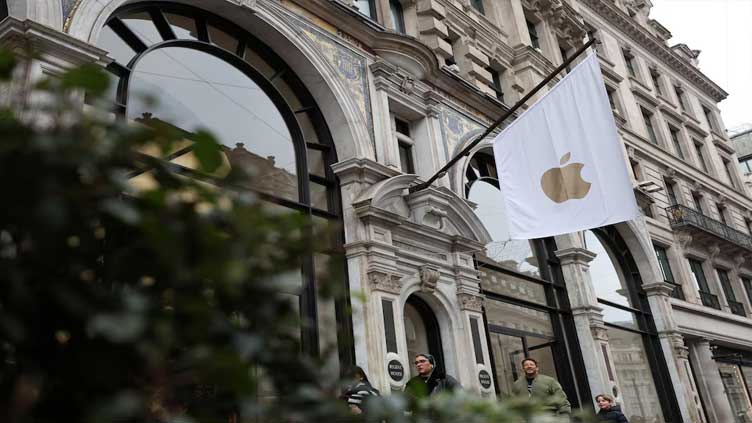Apple fights 1.8 billion-dollar App Store lawsuit in first of UK class actions against tech giants

Technology
Apple fights 1.8 billion-dollar App Store lawsuit in first of UK class actions against tech giants
LONDON (Reuters) - Apple has abused its dominant position by charging app developers an unfair 30% commission through its App Store, costing British consumers up to 1.5 billion pounds ($1.8 billion), a London tribunal heard on Monday.
The US tech company is facing a mass lawsuit brought on behalf of around 20 million iPhone and iPad users in the United Kingdom, who were allegedly overcharged for app purchases.
Apple, however, says the case is meritless and overlooks the benefits to consumers of the integrated approach of its iOS operating system, which prioritises security and privacy.
The lawsuit at London's Competition Appeal Tribunal is the first mass lawsuit against a tech giant to come to trial under Britain's burgeoning class action-style regime, with many other cases waiting in the wings.
A similar $1.1 billion case against Google over the commission it charges app developers for access to its Play Store begins later in 2025.
'100% MONOPOLY'
Rachael Kent, the British academic bringing the case which began on Monday, argues Apple has made "exorbitant profits" by excluding all competition for the distribution of apps and in-app purchases.
This dominant position, her lawyers argue, allows Apple to impose restrictive terms on app developers and charge excessive commission, which they say is ultimately borne by consumers.
"Apple is not just dominant ... it holds a 100% monopoly position," Kent's lawyer Mark Hoskins said in court filings.
But Apple – which has faced mounting pressure from regulators in the U.S. and Europe over the fees it charges third-party developers – says 85% of developers do not pay any commission at all.
The company's lawyer, Marie Demetriou, said in court filings that the commission reflects "the enormous benefits conferred through Apple's innovation by the iOS ecosystem as a whole".
Kent's case simply ignores Apple's intellectual property rights, Demetriou added, describing the contention that Apple must let developers use its technology as they wish as an "expropriation of property rights masquerading as competition".


